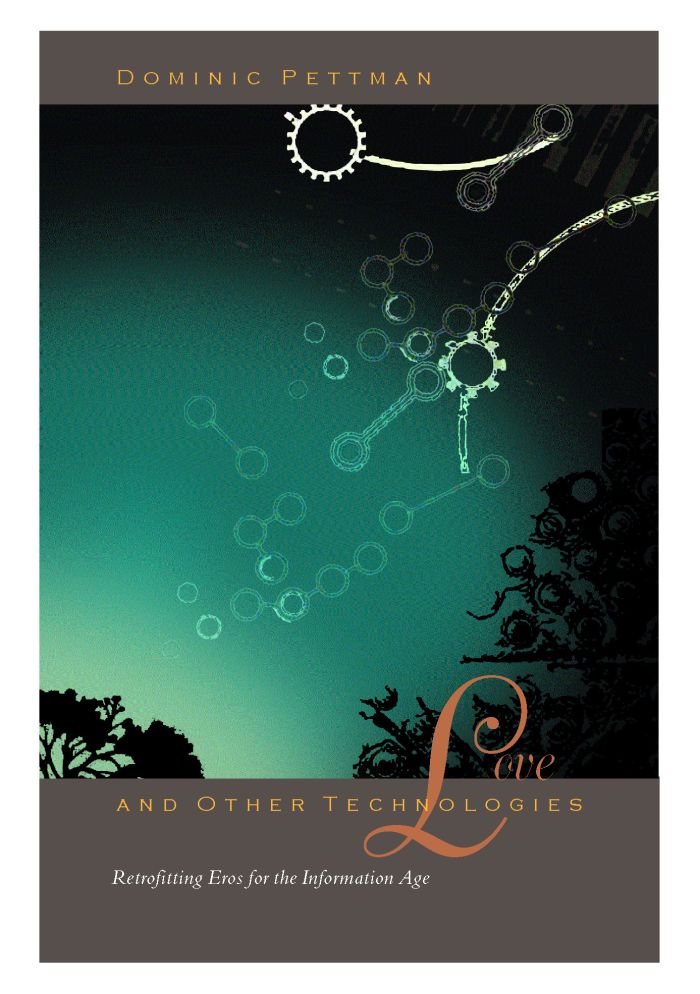Love and Other Technologies
Retrofitting Eros for the Information Age

This book can be opened with

Can love really be considered another form of technology?
Dominic Pettman says it can—although not before carefully redefining technology as a cultural challenge to what we mean by the "human" in the information age. Using the writings of such important thinkers as Giorgio Agamben, Jean-Luc Nancy, and Bernard Stiegler as a springboard, Pettman explores the "techtonic" movements of contemporary culture, specifically in relation to the language of eros. Highly ritualized expressions of desire—love, in other words—always reveal an era's attitude toward what it means to exist as a self among others. For Pettman, the articulation of love is a technique of belonging: a way of responding to the basic plurality of everyone's identity, a process that becomes increasingly complex as the forms of mediated communication, from cell phone and text messaging to the mass media, multiply and mesh together.
Wresting the idea of love from the arthritic hands of Romanticism, Pettman demonstrates the ways in which this dynamic assemblage—"the stirrings of the soul"—have always been a matter of tools, devices, prosthetics, and media. Love is, after all, something we make. And, love, this book argues, is not eternal, but external.
. . . has the potential to persuade even the most conservative humanist or stalwart romantic to consider love in a new light.
Makes its great contributions to exploring the potential spaces of a profound ethical happiness.——Cosmos and History: The Journal of Natural and Social Philosophy
. . . an important book, one that elevates our discussions of community and belonging to a rhetorically higher (and far more seductive) level.
. . . Full of intelligent insights and interesting connections that derive from the cutting edge of cultural theory. Recommended.——Choice

